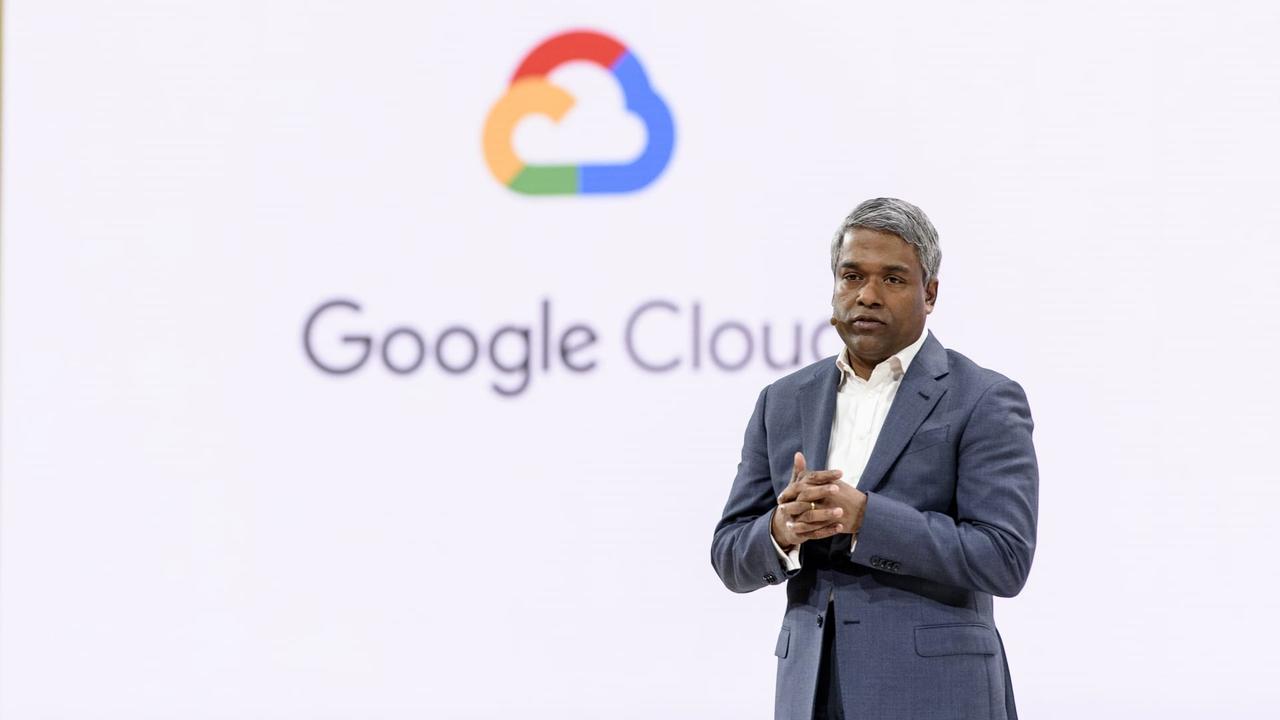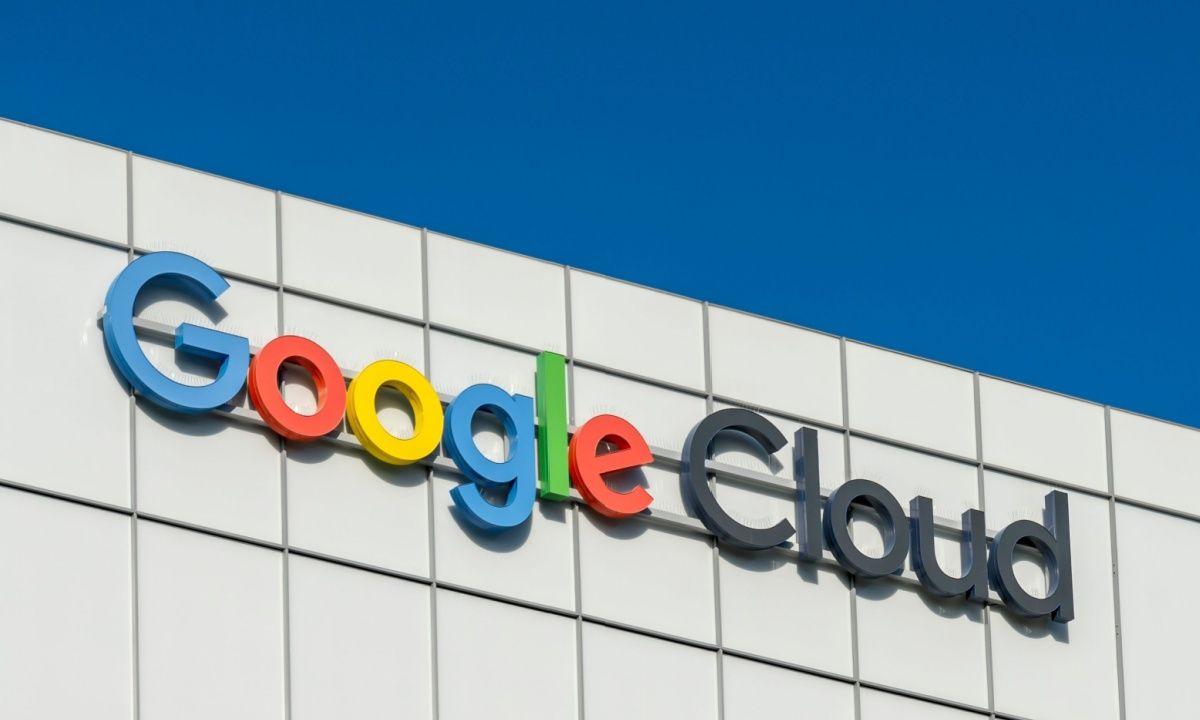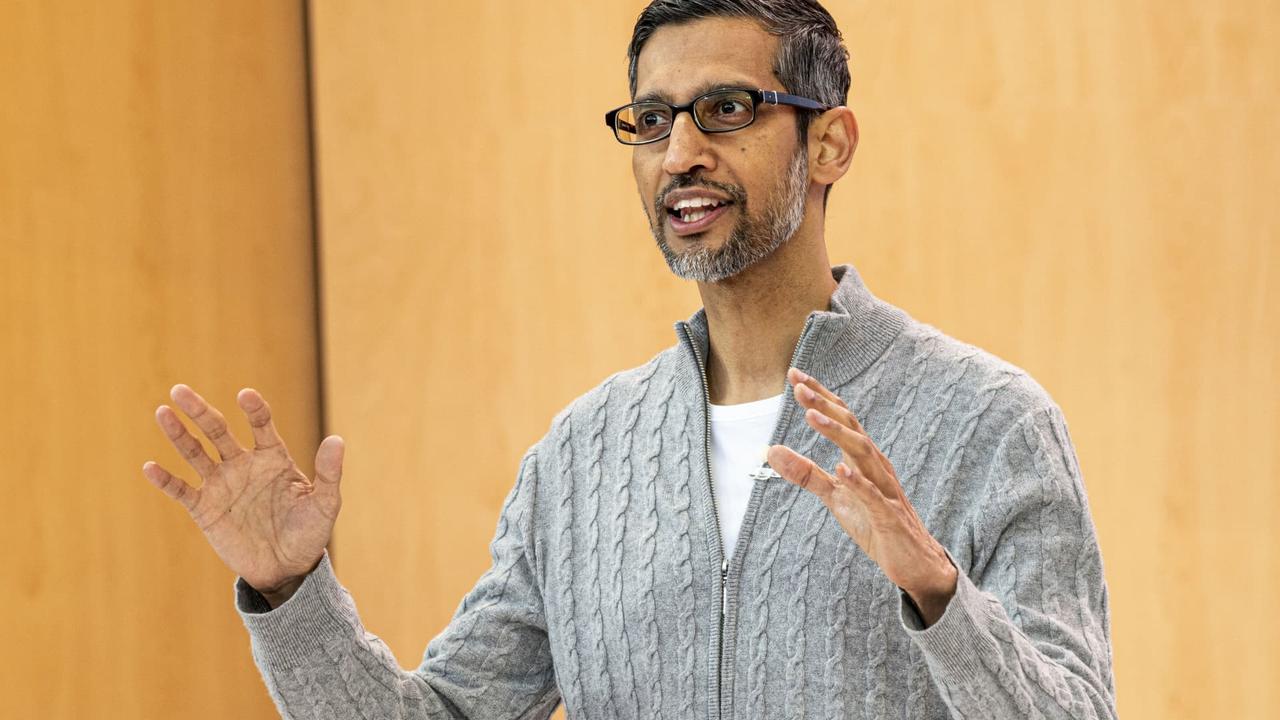Google Cloud's AI-Driven Growth: CEO Thomas Kurian Reveals Billion-Dollar Monetization Strategy
3 Sources
3 Sources
[1]
Google Cloud CEO sees sunny prospects thanks to AI demand
Google Cloud CEO Thomas Kurian says the Chocolate Factory's rental computing business has $106 billion of unfulfilled contracts, and he expects Google Cloud will be able to realize about half of that in revenue within two years. Speaking at the Goldman Sachs Communacopia and Technology Conference in San Francisco on Monday, Kurian said: "So our remaining performance obligation, or backlog [as it] is sometimes referred to, is now at $106 billion. It is growing faster than our revenue. More than fifty percent of it will convert to revenue over the next two years." In July, Google parent Alphabet reported [PDF] $13.6 billion revenue for Google Cloud in Q2 2025, up 32 percent from the same period a year earlier. If Kurian is correct - and his statements were preceded by the boilerplate warning about the limits of forward-looking statements - that suggests Google Cloud will have an extra $53 billion to play around with by 2027. For the sake of comparison, Microsoft for the first time in July reported Azure's annual revenue and annual growth rate, $75 billion and 34 percent respectively for its fiscal Q4 2025. That's about $19 billion on an average quarterly basis. AWS, which reported revenue of $30.9 billion in Q2 2025, grew at a rate of 17.5 percent that quarter. Addressing the investment community, Kurian made a case for ongoing revenue growth based on the potential for on-premises IT to move toward cloud services. "Cloud computing continues to grow as the primary vehicle through which enterprises deploy their core information technology systems," he said. "Cloud, although it has grown, it's still in its early phase because a lot of machines and applications still run on-premises and have not yet moved." Kurian said the focus of cloud customers has shifted from application or web hosting to vendors who can provide technology and solutions to help businesses transform their operations by applying artificial intelligence. Google Cloud, he argued, is well-positioned to capture that business through product differentiation in performance, cost, reliability, and efficiency in AI infrastructure. Citing Google's eleven years of building AI systems and chips, Kurian said Google's AI systems are heavily optimized for training and inference. "For example, if you're running a large scale cluster, we have two times the power efficiency, meaning you get two times the flops per watt," he said. "And with power now, the scarce resource, you get a lot more capacity. We're typically seeing about a fifty percent performance delta between us and other players." In terms of total capacity on a single system, he said, you can get 118 times more throughput on Google's systems compared to "the next player." Kurian went on to tout Google's AI storage optimization and its high-bandwidth optical networking that can be easily shifted from training to inference without downtime. "If you compare us to other hyperscalers, we are the only hyperscaler that offers our own systems and our own models, and we're not just reselling other people's stuff," he said, seemingly ignoring Microsoft's recent debut of its own in-house models and Amazon Nova. "The volume of tokens we process is twice [compared to] other providers in half the time - so roughly four times the volume." Kurian went on to detail the five ways Google is monetizing AI - something of a concern for investors given the billions hyperscalers are spending to build out data center capacity for AI services. Some customers pay based on consumption of tokens in AI models, he said. Some pay for subscriptions to services like Google Agentspace or Workspace. Some monetization comes from increased product usage, Kurian added, pointing to how using Google's cybersecurity agent involves threat analysis AI. "For example, we're over 1.5 billion threat hunts, we call it, using Gemini. And that drives more usage of our security platform. Similarly, we see growth in our data cloud." And, Kurian said, Google monetizes some of its products through value-based pricing. So customers using the company's customer service system may pay by deflection rate - help requests not routed to a person. And customers using Google's creative tools might pay based on advertising conversion rate. Finally, there's the upsell - where Google Cloud customers move to pricier service tiers for larger quotas, more capable models, and other niceties. "Sixty-five percent of our customers are already using our AI tools in a meaningful way," he said, adding that those who do so use 1.5 times as many products as those not using AI tools yet. As to how businesses are using AI, Kurian described four primary domains. Companies are using AI to help build digital products, as Google did when it helped Warner Bros. rework "The Wizard of Oz" for the Las Vegas Sphere. Others are using AI for customer service and point-of-sale assistance. "Others are using it to streamline the core of the company and their back office," said Kurian, pointing to how Home Depot uses AI for its HR Help Desk to answer employee questions about benefits and the like. And then there are companies using AI for IT applications, like writing code and scanning for cyber threats. In short, if you are in the business of renting cloud infrastructure, you can earn a lot more rent by selling businesses on AI services that depend on cloud infrastructure. ®
[2]
Google Cloud chief details how search giants is making billions monetizing its AI products
Thomas Kurian, CEO of Google Cloud, speaks at a cloud computing conference held by the company in 2019. Google's cloud chief Thomas Kurian on Tuesday explained how the tech giant is already monetizing its various artificial intelligence services to generate revenue. "We've made billions using AI already," said Kurian, speaking at the Goldman Sachs Communacopia and Technology Conference in San Francisco. Kurian said that Google Cloud's backlog of customer demand is growing faster than its revenue. "Our backlog is now at $106 billion -- it is growing faster than our revenue," he said. "More than 50% of it will convert to revenue over the next two years." During its most recent second quarter, Google parent Alphabet in July reported revenue of $13.62 billion for its cloud computing business, which was a 32% increase from the year prior. Alphabet's net income increased to $28.20 billion, up nearly 20% from the previous year. While Google's cloud unit lags Microsoft and Amazon's cloud units, it's growing faster than them. Here's what Kurian said about how Google Cloud is monetizing AI:
[3]
Google Cloud CEO Says Tech Giant Has 'Made Billions' on AI | PYMNTS.com
"We've made billions using AI already," Thomas Kurian said Tuesday (Sept. 9) at the Goldman Sachs Communacopia and Technology Conference in San Francisco, CNBC reported. "Our backlog is now at $106 billion -- it is growing faster than our revenue. More than 50% of it will convert to revenue over the next two years," Kurian said. Google reported revenue of $13.62 billion for its cloud computing unit, up 32% over the previous year. The company's cloud business trails those of Microsoft and Amazon, the report noted, but is growing faster than them. In some cases, the revenue comes from people paying by consumption, such as enterprise customers who purchase artificial intelligence infrastructure. Others pay for cloud services through subscriptions. "You pay per user per monthly fee -- for example, agents or Workspace," said Kurian, referring to the company's Gemini products and Google Workspace productivity suite, which come with a number of subscription tiers. Kurian told the conference that upselling is another important part of Google Cloud's strategy. "We also upsell people as they use more of it from one version to another because we have higher quality models and higher-priced tiers," he said, also noting that Google is capturing new customers more quickly. "We've seen 28% sequential quarter-over-quarter growth in new customer wins in the first half of the year," said Kurian, with nearly two-thirds of customers already using Google Cloud's AI tools. In other Google Cloud news, the company's head of strategy, Web3 said recently that Google's Layer 1 blockchain will provide a neutral infrastructure layer for use by financial institutions. In a post on LinkedIn, Rich Widmann wrote that the blockchain, Google Cloud Universal Ledger (GCUL), "brings together years of R&D at Google to provide financial institutions with a novel Layer 1 that is performant, credibly neutral and enables Python-based smart contracts." Widmann said Google Cloud will reveal additional technical details about GCUL within months.
Share
Share
Copy Link
Google Cloud CEO Thomas Kurian outlines the company's AI-driven growth strategy, revealing a $106 billion backlog and detailing how Google is monetizing its AI products across various sectors.
Google Cloud's Impressive Growth and AI-Driven Strategy
Google Cloud CEO Thomas Kurian has unveiled the company's ambitious growth plans and AI-driven strategy at the Goldman Sachs Communacopia and Technology Conference in San Francisco. Kurian announced that Google Cloud has amassed a staggering $106 billion in unfulfilled contracts, with more than half expected to convert to revenue within the next two years
1
2
.
Source: CNBC
The cloud computing giant reported a 32% year-over-year increase in revenue for Q2 2025, reaching $13.6 billion
1
. This growth rate outpaces competitors like Microsoft Azure and Amazon Web Services, positioning Google Cloud as a formidable player in the cloud computing market.AI as the Cornerstone of Google Cloud's Success
Kurian emphasized that Google Cloud's success is largely attributed to its focus on artificial intelligence. He stated, "We've made billions using AI already," highlighting the company's early adoption and integration of AI technologies
2
3
.Google Cloud's AI offerings are differentiated by their performance, cost-effectiveness, and efficiency. Kurian boasted about the company's AI infrastructure, claiming twice the power efficiency and 50% better performance compared to competitors
1
. He also noted that Google Cloud's systems can provide up to 118 times more throughput on a single system compared to the nearest competitor.
Source: The Register
Monetization Strategies for AI Products
Google Cloud has implemented various monetization strategies for its AI products:
- Consumption-based pricing: Customers pay based on the volume of tokens processed in AI models
1
. - Subscription models: Services like Google Agentspace and Workspace are offered through subscription tiers
1
3
. - Increased product usage: AI integration drives higher usage of other Google Cloud products, such as cybersecurity and data cloud services
1
. - Value-based pricing: Some products are priced based on performance metrics, such as customer service deflection rates or advertising conversion rates
1
. - Upselling: Customers are encouraged to upgrade to higher-priced tiers for access to more capable models and larger quotas
1
3
.

Source: PYMNTS
Related Stories
AI Adoption and Customer Growth
Kurian revealed that 65% of Google Cloud customers are already using AI tools in meaningful ways
1
. These AI-adopting customers tend to use 1.5 times as many products as those not yet utilizing AI tools, demonstrating the technology's potential for driving additional revenue1
.Google Cloud has also seen a significant increase in new customer acquisition, with a 28% sequential quarter-over-quarter growth in new customer wins during the first half of the year
3
.Future Outlook and Industry Impact
As cloud computing continues to grow as the primary vehicle for enterprise IT systems, Google Cloud is well-positioned to capture a significant share of the market. Kurian argued that the cloud industry is still in its early phases, with many applications and machines yet to migrate from on-premises setups
1
.The focus of cloud customers has shifted from simple application or web hosting to seeking vendors who can provide technology and solutions for business transformation through AI. Google Cloud's extensive experience in building AI systems and chips over the past eleven years gives it a competitive edge in this evolving landscape
1
.As Google Cloud continues to innovate and expand its AI offerings, the company is poised to play a crucial role in shaping the future of cloud computing and artificial intelligence integration across various industries.
References
Summarized by
Navi
[1]
Related Stories
Recent Highlights
1
Samsung unveils Galaxy S26 lineup with Privacy Display tech and expanded AI capabilities
Technology

2
Anthropic refuses Pentagon's ultimatum over AI use in mass surveillance and autonomous weapons
Policy and Regulation

3
AI models deploy nuclear weapons in 95% of war games, raising alarm over military use
Science and Research








